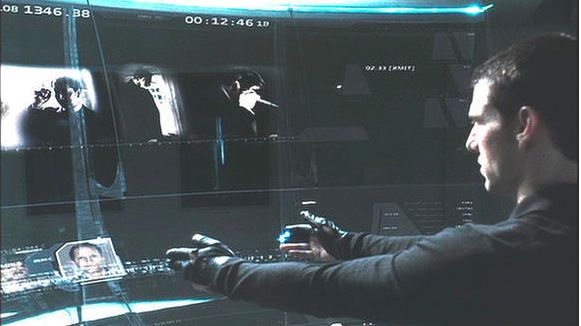FTC issues facial recognition guidelines
A report that begins by quoting Minority Report

Sign up for breaking news, reviews, opinion, top tech deals, and more.
You are now subscribed
Your newsletter sign-up was successful
Apparently someone at the U.S. Federal Trade Commission finally got around to watching Minority Report in their Netflix queue.
The agency in charge of consumer protection issued 30 pages of facial recognition guidelines Monday for companies using the now-trendy technology, and the executive summary started off by quoting the Steven Spielberg film.
"John Anderton... You could use a Guinness right about now," the report read, recalling the scene in which Tom Cruise's character is targeted by individualized ads.
After spending the next paragraph further discussing the 2002 movie, the FTC got into the finer details of what biometric-deploying companies should and shouldn't do.
In the eye of the consumer
In the report, titled "Facing Facts: Best Practices for Common Uses of Facial Recognition Technologies," the commission laid out exactly what it felt those practices should look like.
Companies should incorporate "privacy by design," wrote the FTC. This means that information collected should be stored securely and disposed of when it's no longer needed.
The report gave examples, like if a young woman uploads a photo to virtually "try on" eyeglasses and later deletes her account, the photos should be discarded too.
Sign up for breaking news, reviews, opinion, top tech deals, and more.
There are times when no facial recognition should take place, too.
"Bathrooms, locker rooms, health care facilities or areas where children congregate" should be off limits, the report stated bluntly.
Awareness is key
Consumers should always be aware of when something is detecting them and should know how the information collected is going to be used, including if the use changes.
Having the option to opt out or never opt into a program was also recommended. The FTC illustrated what could happen if individuals are automatically recognized by an app.
"Consider the example of a mobile app that allows users to identify strangers in public places, such as on the street or in a bar," the report read.
"If such an app were to exist, a stranger could surreptitiously use the camera on his mobile phone to take a photo of an individual who is walking to work or meeting a friend for a drink and learn that individual's identity - and possibly more information, such as her address - without the individual even being aware that her photo was taken."
Having to choose whether or not data is collected goes against the care-free convenience that biometric technology is supposed provide.
But when the report gave examples like that, such guidelines make sense.
Guidelines aren't intended for enforcement...yet
The FTC says that the 30-page report of guidelines is simply just that - guidelines
So far, nothing within the report is intended to serve as a template for law enforcement actions or regulation by the FTC.
That could of course change in the future.
"As we have seen with other technologies," the report said in its conclusion, "technological advances and the attendant business models they create often move faster than consumers' awareness or comfort."
